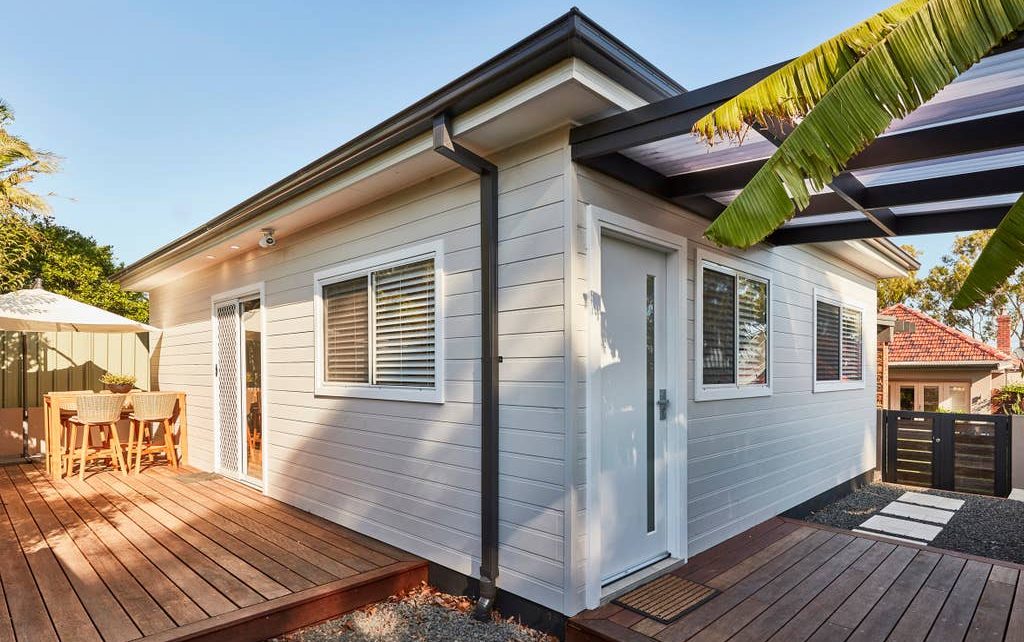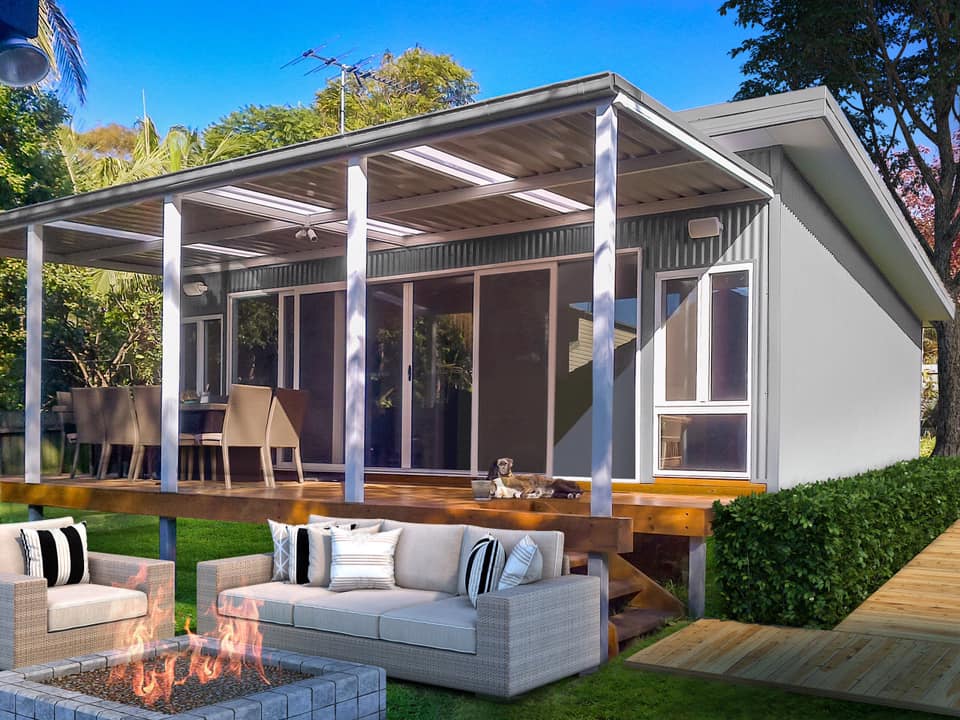
Granny flat. (airbnb)
New Rent Cap Law Fails To Protect Recently Built Granny Flats
Loophole will maker newer granny flats one of the few AB 1482 exemptions
By Evan Symon, December 28, 2019 2:29 am
AB 1482, which will set rent caps and remove no-cause eviction in California, is set to come into law starting January 1st. While most renter and landlord groups have grudgingly agreed to the compromise law, one set of renters have expressed concern about their situation and how the new law doesn’t cover them: those living in recently built ‘accessory dwelling units’, also known as ‘granny flats’.
AB 1482’s granny flat exemption
“Granny flats are generally like a small apartment, usually a bedroom, kitchen, and bathroom,” said Erica Michaels, a Los Angeles real estate appraiser. “Think like a detached or partially detached mother-in-law flat. Or like a small guest house. Usually older couples or single people rent them.”
“The difference with the new law is that these places are often rented out. And while some are covered, those that were built recently in the last 15 years, they aren’t exempt because they’re newer. And it gets more confusing because they could still be found to be under AB 1482 in the future because it’s under a ‘rolling’ basis.”
“Not many people rent out homes built since 2005 or so. But people renting these out, especially in the wake of the great recession and the housing crisis? There’s more than you think. Probably in the thousands across California. And they can still be kicked out or given a huge rent hike at any time.”
Once a solution, granny flats are now a renting danger
The granny flat exemption is notable as they were once touted as one of the best ways to overcome the housing crisis. Former Governor Jerry Brown even signed SB 1069 in 2016 to make it easier to build granny flats as a housing crisis solution. A larger number of new granny flats under AB 1482 only means that a larger number of exempted people who aren’t protected.
That loophole in the law has left many people living in such flats concerned about the near future.
“I had to move in here in 2014,” said “Henry,” a current tenant in a granny flat in San Diego. The “flat” he lives in is only ten years old, but because it falls under the loophole, his landlord can increase his rent or kick him out at anytime.
“I’m worried because rents have been going up all over and I’ve been barely making rent,” Henry said. “And he’s been talking about doubling it simply because he knows someone who will pay it.”
“When I heard that this new law was coming giving rent control and everything, I thought I was going to be safe. That I had time. Now I’m not so sure.”
Possible hope for granny flats
While there was an eviction crunch in the lead up to 2020 with many apartments raising rents and removing tenants while they could, Henry thought it was odd that nothing happened to his situation.
“Now I know why. I guess they didn’t help everyone like they said they would.”
He may still be covered if his flat is protected under AB 1482, but it may not happen.
“There’s going to be a lot of checking up by law enforcement early next year,” said Erica. “A lot of landlords will try to increase things certain ways. Approving some of the exemptions that were given a ‘maybe’ in being possibly covered in the future won’t be that high on the list unless it’s an emergency.”
“And it’s sad. This bill largely covered a lot, but it left a few things out simply because the authors thought newer things could be charged more. They forgot about the little guy who was under this.”
AB 1482 comes into effect in California on January 1st.
- Bill to Require Law Enforcement Disclosure if AI Was Used To Help Write Reports - August 7, 2025
- Gov. Newsom Files FOIA Request To ‘Expose True Cost’ Of L.A. Federal Troop Deployment for Anti-ICE Riots - August 6, 2025
- California Redistricting: How Newsom’s Plan Will Demolish Hard Fought GOP Gains - August 6, 2025





“his landlord can increase his rent or kick him out at anytime”
See, there used to be this thing called a lease. Not so much anymore in California.